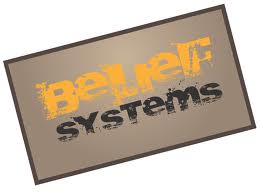 I have been where you are. I understand the confusion and chaos you live with.
I have been where you are. I understand the confusion and chaos you live with.
I have told myself all of the same things you tell yourself, the rationalizations you use to justify the insanity of an unsafe relationship.
I have also found freedom. I have discovered the truth. I want to you discover the same.
Sometimes it takes a little jolt to get us out of our dysfunctional mindset so that we can renew our strength and find the determination we need to break the cycle.
Have these thoughts crossed your mind?
Lie #1: This must be normal.
You assume that your relationship is typical of most relationships. Even though you are hurting constantly, strategizing ways to get him* to hear or understand you, trying to prove you are worth loving, you tell yourself that it’s a misunderstanding, a phase or he’s just going through a hard time.
Fear, anxiety, confusion, isolation, diminishment, sarcasm, manipulation, name-calling, shame and blame are not the automatic responses of someone who is just having a bad day. Doesn’t it seem illogical for a man to attack his greatest ally, his best friend, his mate? It should, because it is.
You believe that if you try harder, the abuser will come to appreciate you. In truth, the more he abuses you, the harder you try. That’s what he appreciates.
Lie #2: He’ll change.
Then why hasn’t he?
Why do you believe he will change now or at some time in the future? Because you love him? Because you’re so patient with him? Because he doesn’t mean it? Because he’s said, “I’m so sorry. It won’t happen again”? You believe it because acknowledging that he knows what he’s doing and doesn’t care is too scary.
In truth, you have stayed with him in spite of the fact that he is abusing you; therefore, the message he is receiving is that you really don’t have a problem with it. You are reinforcing that what he’s doing is acceptable.
Where is the incentive for him to change? You’re doing the same things you’ve always done; why shouldn’t he?
If he wants to change, why doesn’t he?
If he won’t change, then you must.
Lie #3: I Need to Protect Him.
Abuse is nurtured and fed by your silence. Part of the abuser’s power is in your willingness to keep his secrets. Stop keeping them.
Instead of protecting him, start protecting yourself.
Lie #4: It’s My Fault.
You are willing to believe your actions determine the way he responds to you. You pushed his button or hit the trigger that set him off.
Do you really hold that much power over his choices or behavior? If that is so, then why don’t you have the power to keep him from abusing you?
You have no power over him, and you never will.
You do, however, have power over what you will do.
What will you do?
Lie #5: He Really Loves Me.
Real love operates 24 hours a day. It doesn’t come and go with the tides, change with the time of day or vaporize because someone has had a bad day.
Abuse is never a function of a normal, healthy relationship. Abuse and love do not occur in the same relationship.
Yes, your abuser wants you. But just because he wants you does not mean he loves you. I know that is very difficult to accept. The truth is that it shouldn’t be that difficult to be kind to someone you profess to love.
So try not to confuse wanting with loving. Just because he may not love you does not mean you are not worth loving. You are.
Lie #6: I Just Need to Explain Things to Him.
Words are just words to an abuser. He can listen to you and not hear anything. You can talk all you want, but until you are willing to do something, nothing will change.
You’ve already talked to him before, right? Has it made any difference?
You keep talking, he keeps abusing, you keep trying harder, and nothing changes – for the abuser or for you.
Stop trying to figure out what words will work. The best word you can use is, “Stop.”
If that word doesn’t work, what words will?
Lie #7: He Says He’s Sorry; He’s Trying.
Anyone can say that they’re sorry. But real sorrow brings real change.
You may latch on to the slightest effort on his part and believe it is the beginning of real change. But there is a monumental difference between compliance and change.
Compliance is giving you the bare minimum. The abuser may get as close to the line of offense you have declared without crossing over, or begrudgingly give you a measure of what you need.
Change is reversing course as a result of acknowledging the truth and doing everything possible (as opposed to as little as possible), to save the relationship and make it a safe, healthy place to be.
Compliance will likely be temporary. The abuser will incrementally attempt to move the line and accuse you of being unreasonable if you contest.
Compliance isn’t change. Without heartfelt change, it’s probably only a matter of time until you are right back where you started.
Lie #8: I Can Save Him.
No, you can’t. The idea that you can save him is enabling at its highest (or lowest) point of insanity.
Enabling is taking responsibility for the actions of another person. Enabling overlooks the abuser’s flaws, forgives him, and lives in a state of denial about the abuse that is taking place.
Enabling is not noble. Once you know that you are living with abuse and you allow it to continue, you are both a victim and an accomplice. You are unwittingly supporting, even encouraging, his behavior by failing to call it what it is and putting a stop to it. Even if you can convince yourself that he doesn’t know what he’s doing; you do.
The abuser chooses how to treat you. You can only choose how you respond – whether to accept that treatment as normal or reject it and demand better.
You can’t save him. You can only save yourself. And if it becomes apparent that you must, you should.
Lie #9: He Needs Me.
Does he need you because you make his meals, clean his house, listen to his griping, sleep with him? Are you the only one who would put up with him?
And what do you get out of the relationship? Are you getting what you need, or are you still waiting for him to treat you like you dream of being treated?
Have your dreams been replaced with a hefty dose of heartache? Grief? Loneliness? Feelings of inadequacy? Is that a relationship, or something more akin to bondage?
Know that, if the day comes that you need to leave for your own sanity, he will survive. Abusers always do. They’re generally too selfish to let anything get in their way of themselves. You will survive, too, as long as you hold tight to the truth that you don’t deserve to be abused.
Lie #10: I Probably Deserve It.
Do children deserve to be abused? Do animals deserve to be abused? Of course not.
So, why you? The “I probably deserve it” lie is what we use to convince ourselves that the abuser has a mysterious (yet justified) reason for the way he treats us. No, you’re not perfect; either is he. But I’m guessing he wouldn’t accept from you one-tenth of what he dishes out.
There’s no good reason he could possibly offer or that you could possibly conjure up to justify abuse. In your heart, you already know that.
Dear friend, if you discover that you have been living in an abusive relationship, get help. There are countless resources available. Reach out, tell the secrets, build a support network. Begin now.
*Although abusers may be of either gender, the overwhelming majority of abusers are male; therefore, the abuser is referenced in the masculine. The reader’s understanding is appreciated.
Copyright 2011, All Rights Reserved
 Can the abuser change? The short answer: Yes.
Can the abuser change? The short answer: Yes.



